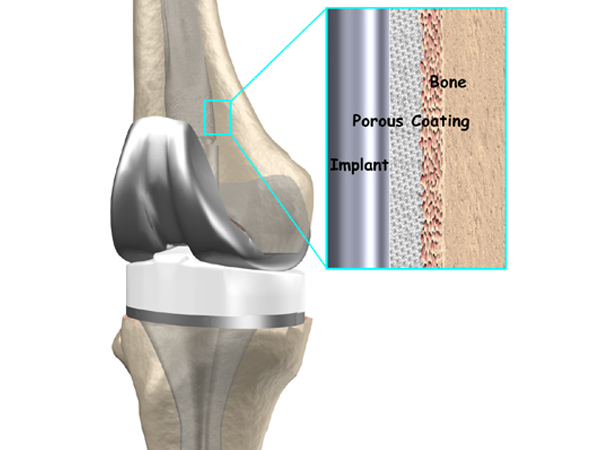
Total knee replacement (TKR) is one of the most successful procedures in all of medicine. In the vast majority of cases, it enables people to live richer, more active lives free of chronic knee pain. Over time, however, a knee replacement may fail for a variety of reasons. When this occurs, your knee can become painful and swollen. It may also feel stiff or unstable, making it difficult to perform your everyday activities.
If your knee replacement fails, your doctor may recommend that you have a second surgery—revision total knee replacement. In this procedure, your doctor removes some or all of the parts of the original prosthesis and replaces them with new ones.
Although both procedures have the same goal—to relieve pain and improve function—revision surgery is different than primary total knee replacement. It is a longer, more complex procedure that requires extensive planning, and specialized implants and tools to achieve a good result.
During primary total knee replacement (TKR), the knee joint is replaced with an implant, or prosthesis, made of metal and plastic components. Although most total knee replacements are very successful, over time problems such as implant wear and loosening may require a revision procedure to replace the original components.
There are different types of revision surgery. In some cases, only one implant or component of the prosthesis has to be revised. Other times, all three components—femoral, tibial, and patellar—need to removed or replaced and the bone around the knee needs to be rebuilt with augments (metal pieces that substitute for missing bone) or bone graft.
Damage to the bone may make it difficult for the doctor to use standard total knee implants for revision knee replacement. In most cases, he or she will use specialized implants with longer, thicker stems that fit deeper inside the bone for extra support.